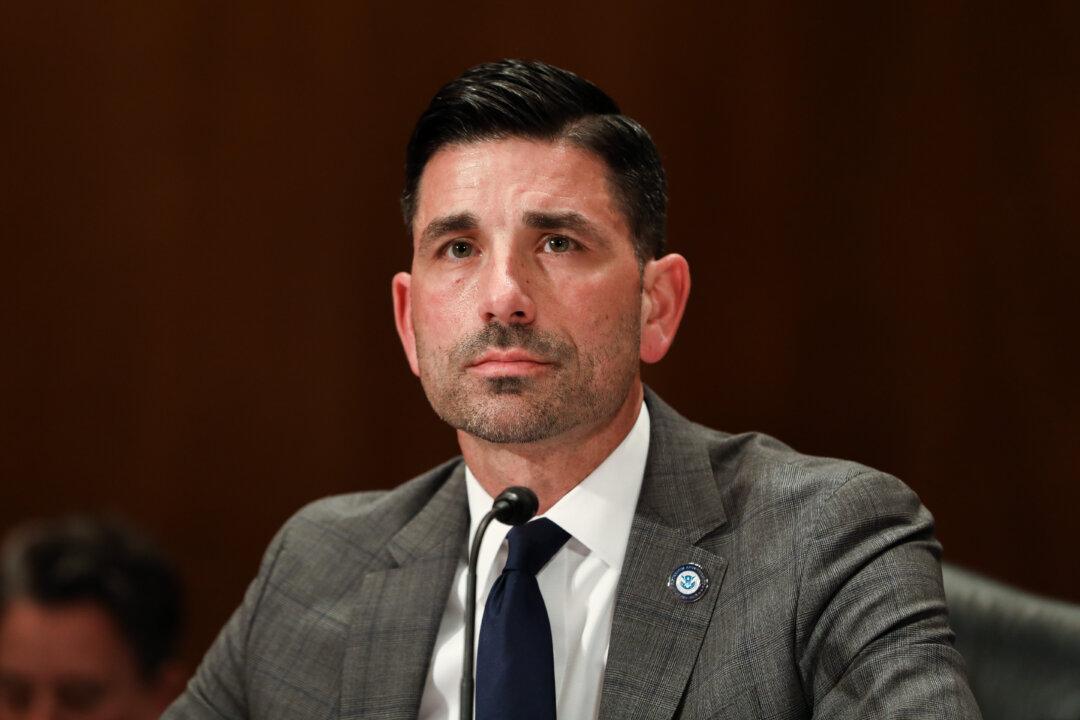President Donald Trump’s top Homeland Security official says his department won’t send officers or agents to polling sites to oversee the Nov. 3 election.
“That’s not what we do at the Department of Homeland Security. We have law enforcement authorities and law enforcement officers at the department. We have express authorities given to us by Congress. And this is not one of them,” Chad Wolf, the department’s acting secretary, said during an Aug. 23 appearance on CNN’s “State of the Union.”





